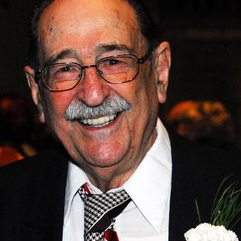click to dowload our latest edition
CLICK HERE TO SUBSCRIBE TO OUR NEWSLETTER


Published
9 years agoon
By
adminMAURICE OSTROFF
First published in THE AUSTRALIAN on January 5, 2015
Published in THE TIMES OF ISRAEL on January 6, 2015
Published in JEWISH REPORT Online on January 7, 2015
Black boxes are easy to retrieve when an aircraft crashes on land, but are hard to find in the sea. When TWA 800 broke apart over the Atlantic near Long Island in 1996, it took seven days to find. When Air France Flight 447 crashed in the Atlantic in 2009, it took two years.
The unsuccessful efforts to recover the flight recorder of Malaysian Airlines Flight MH730 were enormously costly as is the search for the Air Asia Flight QZ8501 black box, involving nine planes plus ships from Indonesia, Malaysia, Singapore and the US, and two Japanese ships with three helicopters en route to the area.
These searches highlight the penny wise and pound foolish policy of using outdated technology in vital data storage devices. Given the huge difficulties and costs, why does the airline industry refuse to use more advanced devices?
The black box (actually orange) comprises a flight data recorder and a cockpit voice recorder. If submerged, the recorders send signals (pings) while their battery lasts (usually 30 days). The technology used hasn’t changed much since it was developed in the 1950s. Here are the possible alternatives.
Ejectable black boxes: As long ago as 1949 a patent was granted for a marker buoy that included the automatic release of a surface float and a dye to discolour the surface of the water. Last July, Airbus was assigned a US patent for an aircraft black box that includes a crash detection device that is ejected outside the aircraft through a duct positioned so that it will not impact the aircraft.
Ejectable recorders that float when ejected over water have been manufactured in the US since the 60s by DRS Technologies and are already installed on some military aircraft. US Congressman David Price proposed legislation in 2007 that would have required ejectable recorders on commercial airliners and reintroduced the bill last March, but no progress has so far been made.
READ MORE OF MAURICE’S WRITES ON SAJR.CO.ZA
Cockpit video (privacy v safety): In 2000 the US National Transportation Safety Board recommended that commercial and charter planes be equipped with video recorders that could provide information such as whether smoke filled the cockpit before an accident, a violent passenger broke in or the pilot became ill. Although such equipment is available from US manufacturers, the recommendation has not been implemented. Pilots and their unions have fiercely fought the project as an invasion of privacy.
A video recorder in the cockpit of EgyptAir Flight 990, which crashed in the sea after take-off from New York in 1999, would have been invaluable to investigators who concluded the pilot crashed on purpose, a finding the Egyptian government disputed.
Satellite transmission: The idea of transmitting black box data by satellite is not new. The technology is used on planes that provide WiFi for passengers. Data could be stored outside the aircraft, with a facility for real-time review in an emergency, triggered by the pilot or from the ground if the plane disappears as did MH370.
In 2009, after the Air France disaster, Der Spiegel reported that Robert Francis, former vice-chairman of the US National Transportation Safety Board, said in future he wanted all important flight data transmitted via satellite. Upgrades to aircraft would not be required -just reprogramming of the software in the communication system. Experts in Germany’s Federal Bureau of Aircraft Accidents Investigation in Braunschweig and the European Aviation Safety Agency in Cologne consider it “technically feasible” to report flight data on every flight to a central office via an online system. But pilots object. “It would be tantamount to the full-scale monitoring of pilots,” says Jorg Handwerg of Cockpit, a German pilots’ association. To protect privacy, Francis says radio communications could be encoded.
More than a decade ago, Krishna Kavi of the University of North Texas’s college of engineering outlined what he calls “glass box” technology to live-stream flight information to anywhere in the world, permitting real-time analysis of flight data such as altitude and cruising speed from which ground-based computers can detect abnormal changes such as a sudden drop in altitude or speed. Kavi discussed the creation of prototype satellite systems with the US Federal Aviation Administration and airlines but was told they would be too expensive.
Yes, transmission of flight data does take up expensive satellite bandwidth. According to Bloomberg’s Businessweek, a 2002 study by L-3 Aviation Recorders and a satellite provider found that a US airline flying a global network would need to spend $US300 million per year to transmit all its flight data, even assuming a 50 per cent reduction in future satellite transmission costs. But experts have argued that a flow of data if the aircraft entered an unusual situation would be sufficient. Kavi offered to explore alternatives to minimise the cost, such as triggering data streaming only in an emergency, and says a cost-benefit analysis of the advantages cannot be performed unless such alternatives are explored.
It is difficult to understand the lethargic approach to modernising this vital aspect of airline safety considering that transmitting the data via satellite could detect mechanical failures, pilot errors, pilot illness and terrorist attacks.
The essential need is to strike the right balance between safety concerns and economic demands. The enormous financial and emotional costs of the search for flights MH370 and QZ8501 underline the urgent need to improve our outdated safety systems.
